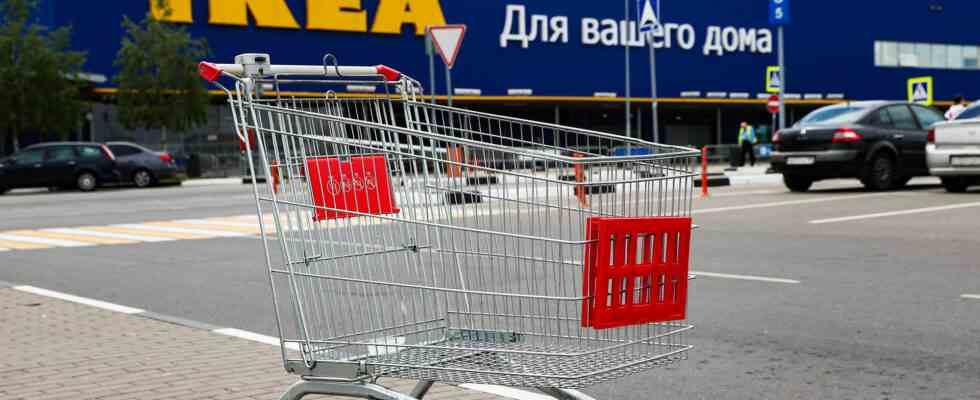Status: 10/28/2022 10:17 a.m
Sanctions are effective even without the participation of economically important countries. Since the measures imposed in 2014, Russian exports have fallen by more than a third. In Iran, the slump was even more pronounced.
Economic sanctions have a significant impact on the affected countries even without the participation of economically important countries such as China. According to a study published today by the German Institute for Economic Research (DIW) and the Kiel Institute for the World Economy (IfW), the measures imposed against Russia in 2014 because of the occupation of Crimea and those against Iran in 2012 had a noticeable effect. .
“With regard to the sanctions imposed on Russia this year, it is relevant that the sanctioned country suffers significant losses in prosperity even if not all of the world’s economically important countries follow suit,” concludes co-author Julian Hinz from the IfW Research Center for Trade Policy.
Loss of wealth after sanctions
According to the study, Russian exports fell consistently 36 percent and imports more than 30 percent lower than before the sanctions imposed in 2014. This resulted in a loss of 1.5 percent of the country’s wealth and 10 percent of its trade gains.
For Iran, the minus was even clearer with 41 percent in exports and 83 percent in imports. The country suffered a permanent loss of prosperity of 1.7 percent and a 12 percent slump in trade profits.
The most well-known and commonly used measure of wealth is gross domestic product (GDP). It records all goods and services produced in a country within a certain period of time on the market or by the state.
Which states would make sanctions more effective?
According to the researchers, the sanctions took effect even though there was no cohesive, global coalition for the sanctions. “Even if important countries are missing from a global coalition, jointly imposed sanctions can significantly weaken the affected country,” said Hinz.
However, the simulations also show which other countries could have contributed particularly effectively to the sanctions if they had joined the western coalition around the USA: In the case of Russia, these would be China, Vietnam, Belarus, Turkey and South Korea in particular. If they had taken part in the punitive measures, the economic damage to Russia would have been particularly severe.
The Iran sanctions would also have gained in impact, above all through the participation of China and also the United Arab Emirates, India, Singapore and Brazil. China’s cooperation on economic measures against Iran and Russia would significantly increase the deterrent potential of the sanctions, the study continues. “Large, developing countries like China, India, Brazil and Vietnam are important allies if you want to drive up the cost of sanctions on Iran and Russia,” Hinz said.
Small sanctioning countries suffer more
With the help of the simulation, it was also examined which of the sanctioning countries bear the highest burden in the form of their own loss of prosperity. The costs would tend to be borne disproportionately by small states. In the case of Russia, high costs were incurred, especially for countries such as Latvia, Lithuania and Estonia – but also for Ukraine.
In absolute terms, Germany, Poland and Ukraine bear the heaviest burdens. The two institutes announced that the lowest costs in absolute values are borne by the USA, Great Britain, Japan, Canada and Australia.
Measures against Iran and Russia
The West has imposed sanctions on both Iran and Russia this year. The US has recently taken action against the commander of the Iranian Revolutionary Guards and his deputy, against high-ranking officials such as the director of the notorious Ewin prison in the capital Tehran and against members of the secret service for the brutal crackdown on the protests in Iran. Germany also wants to impose further restrictions on Iran in addition to the existing sanctions in the EU. For example, business contacts that are already limited are to be further reduced – also with regard to existing business relationships between Iranian banks.
Measures taken against Russia at EU level include a range of import and export restrictions. For example, special goods that are required for oil refining may not be exported from the EU to Russia. The sixth package of sanctions also banned the purchase, import or transfer of crude oil and certain petroleum products from Russia to the member countries.
With the eighth package of sanctions against Russia decided this month, the EU states are also creating the basis for Russia having to sell oil to large buyers such as India at a significantly lower price than at present. This is intended to reduce Moscow’s income, which is also used to finance the war against Ukraine.

